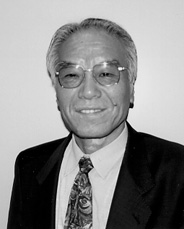- TOP
- 資料館
- FOCUS
- June 2000 - Volume 20
- Farewell Message
FOCUS June 2000 Volume 20
Farewell Message

Professor Dong-hoon Kim
Director, HURIGHTS OSAKA - 1994-2000
Thank you very much for the many encouraging words and expectations on HURIGHTS OSAKA. I hope you will understand that HURIGHTS OSAKA has two faces just like Janus. One face is the inner society. HURIGHTS OSAKA is expected by the inner society - meaning the citizens, the local governments of the city and prefecture of Osaka - to do more for them. The other one is the Asian face.
I am of Korean origin who have been living in Japan for many years. My wish is to contribute to the realization of human rights and democracy in Asia. As you know, after the establishment of HURIGHTS OSAKA, the Japanese economy became stagnant. So we have difficulty in realizing our purpose. But after participating in this kind of workshop for the past three years, I felt that South and Southeast Asia subregions are facing much more difficulties. But I have been encouraged by the participants' efforts and fascinating work. Many governments or governmental organizations are still reluctant or negative not only about human rights education but human rights itself. To the governments, the concept of human rights is still anti-government. In Japan too, action plans at national and local levels have been made. I have been involved in making some of the local plans. But still, the plans are not fully implemented. We are now trying to implement them at the local level. At the national level, the Ministry of Education still does not give attention to the national plan. For example, in the 1999 Northeast Asian Training Workshop in Seoul, Korea organized by the UN there was not a single person from the Ministry of Education. Only people from the Ministry of Foreign Affairs were present. Thus it is important for NGOs and human rights experts to speak about human rights education themselves.
I have been involved in HURIGHTS OSAKA since its preparatory phase and establishment. This means that I have been involved in HURIGHTS OSAKA for more than ten years actually.
I have been struggling for the elimination of discrimination against Koreans and other minorities in Japan. I have also been involved in the campaign to institutionalize ethnic education. We have been asking the local government people what they think about ethnic education for Koreans and what will they do about it. While they express nice statements about the situation of the Koreans in Japan, their sufferings and all, there is still the problem of fulfilling such statements.
HURIGHTS OSAKA celebrated its fifth anniversary last year. We are now thinking of plans for the next five years. What is clear is that for the next five years, we should continue human rights education activities. We are thinking of more concrete projects. I am leaving HURIGHTS OSAKA as its Director but I was requested to become an adviser. And thus I may still be able to participate in its future activities. We need your help and cooperation to be able to implement our projects in the future.
Regarding networking, in the Delhi workshop (1998) there was a designation of representatives from each South Asian country who can network with each other. But it did not work well. This time I hope the networking will come true.
I told the Japanese local government in Osaka about the importance of the subregional workshops. I told them that the more important thing, the most precious property as I describe it, is the networking, solidarity and friendship among the experts, NGOs and government institutions working for human rights or human rights education in Asia-Pacific.
I therefore sincerely hope that your networking will be implemented in the future. Even though I am leaving HURIGHTS OSAKA, human rights is my lifetime work. I will be involved in human rights work even after coming back to Korea. The country still has a difficult situation, and so I would like to work with my Korean friends to promote and protect human rights in Korea.
* Closing remarks of Professor Kim given at the South Asian Training Workshop on Human Rights Education in Schools (23-26 June 2000 Bangkok).
